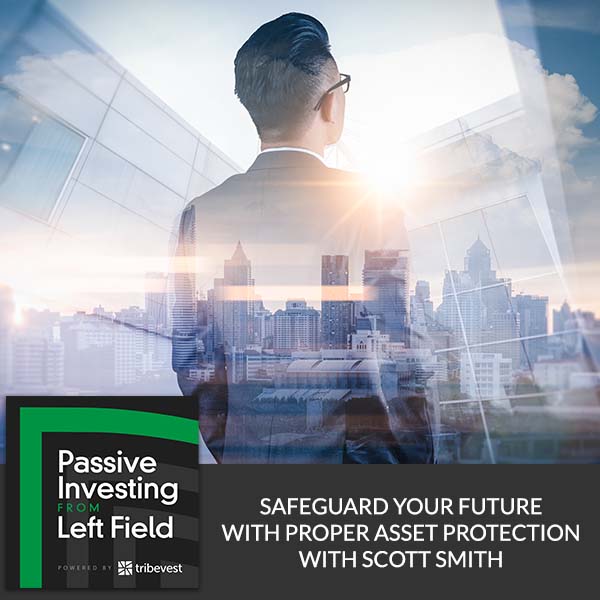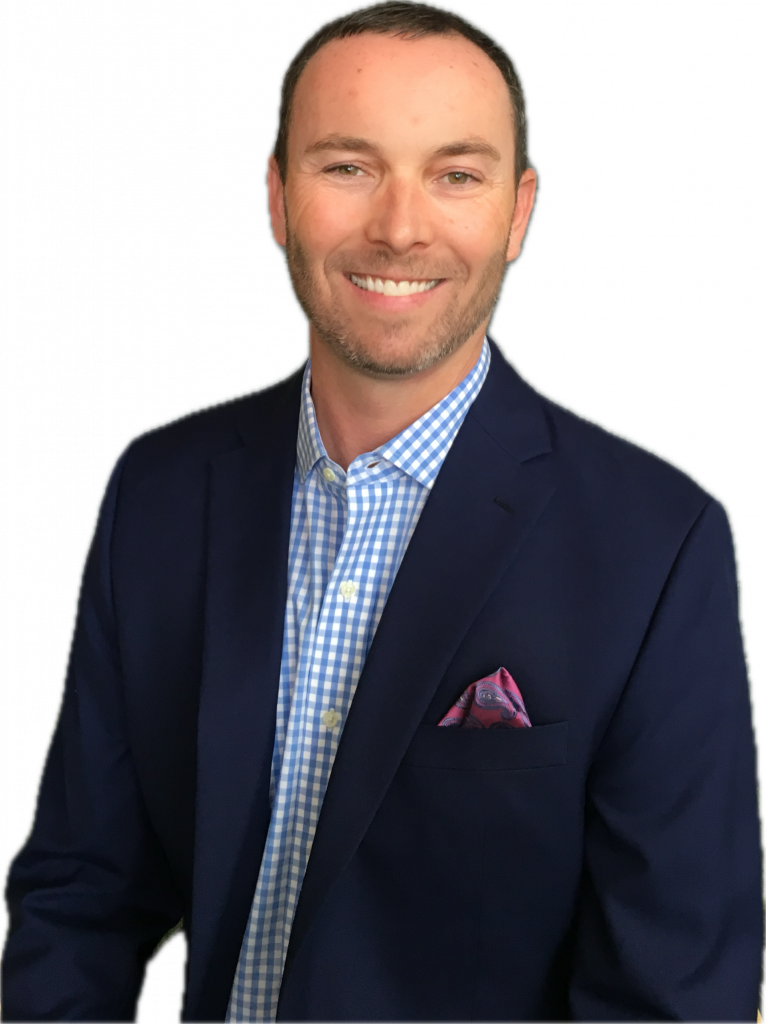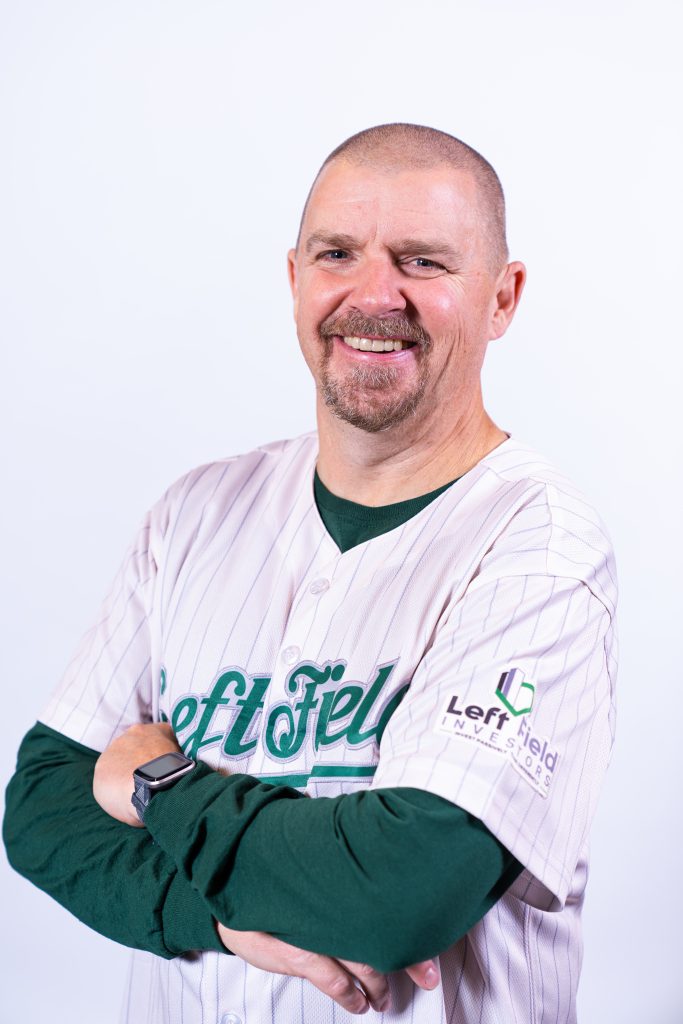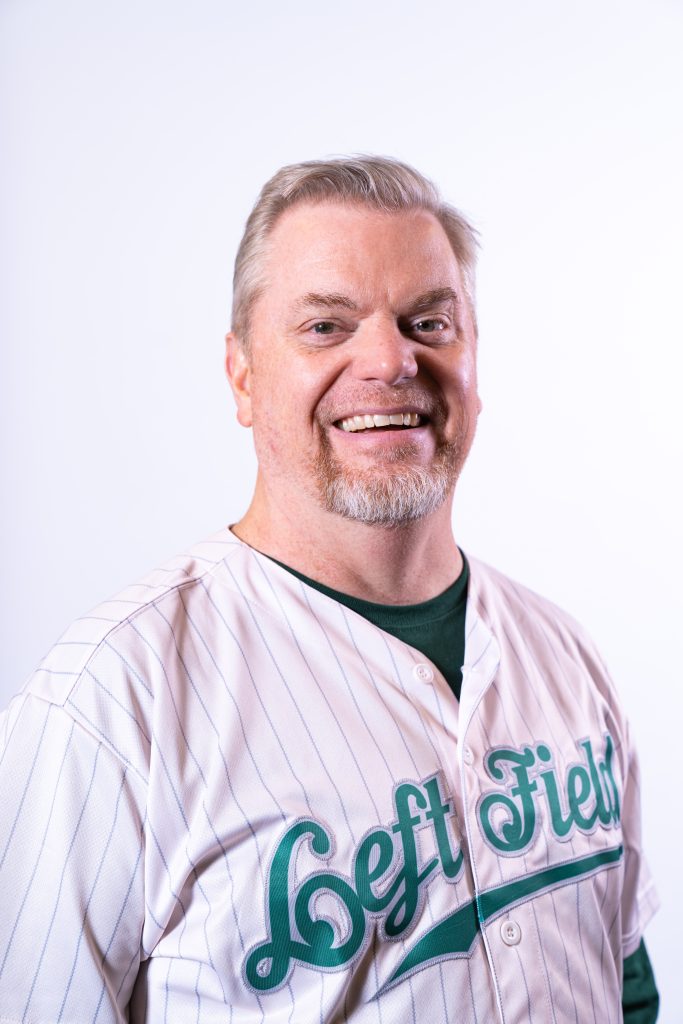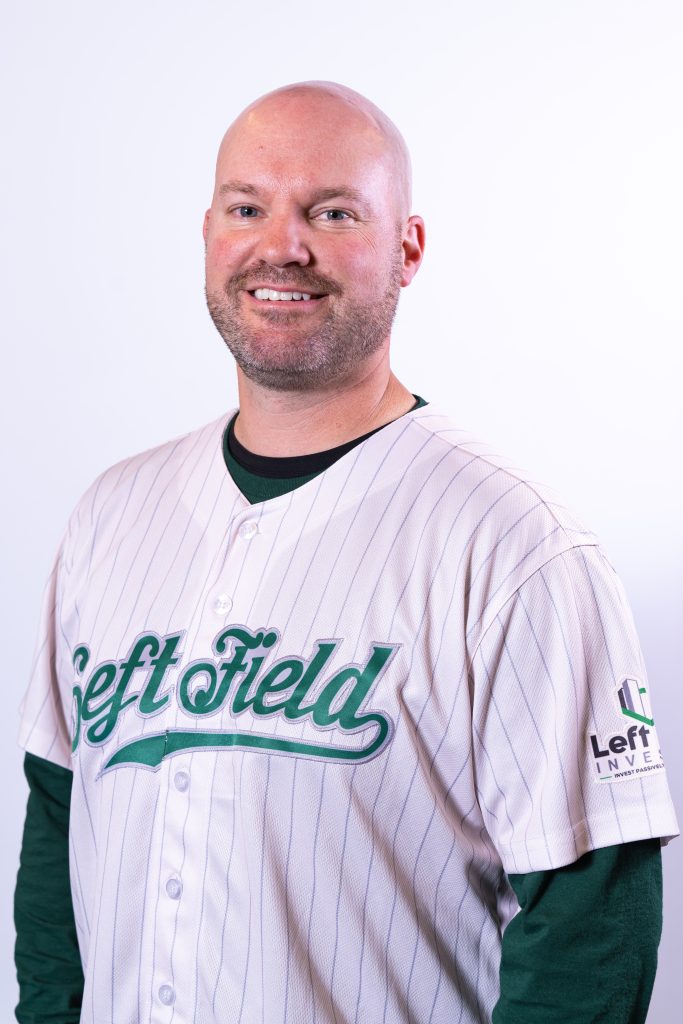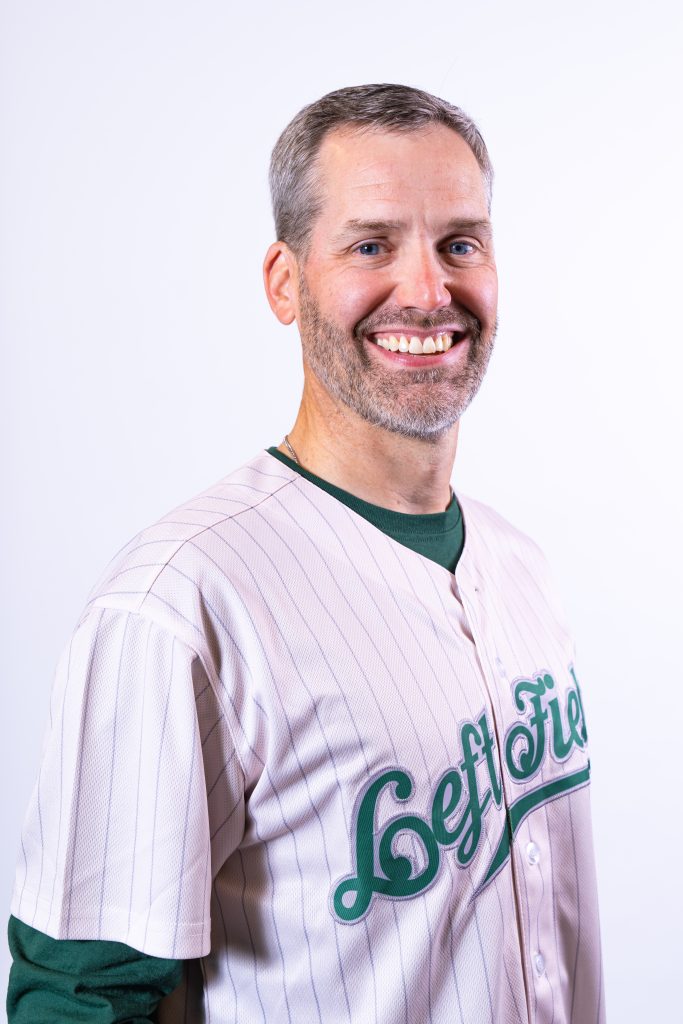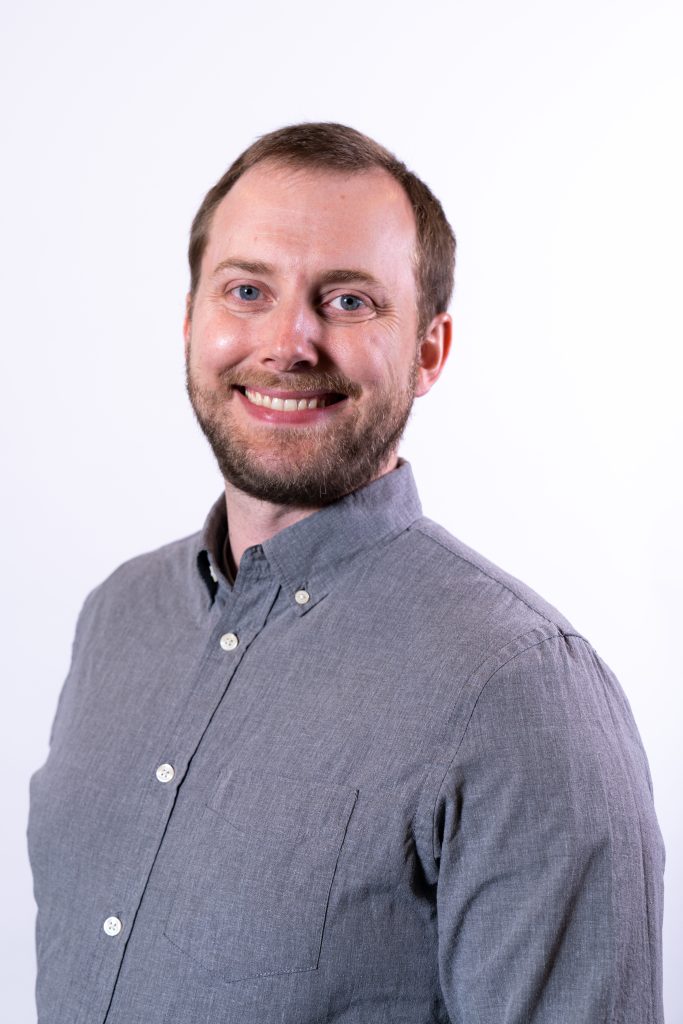
When it comes to asset protection and the legal side of real estate, many people have not properly structured their protection. Often, investors use their personal names on their assets, and when things get rough, they can end up with nothing. Learn how you can protect yourself with your host, Jim Pfeifer, as he talks with Scott Smith of Royal Legal Solutions. Scott is an Attorney and the Founder of Royal Legal Systems. His goal is to share his legal and asset protection knowledge to help real estate investors protect their future. Listen to the conversation to learn about Series LLC’s and much more to effectively protect your assets!
—
Listen to the podcast here:
Safeguard Your Future With Proper Asset Protection With Scott Smith
I’m pleased to have Scott Smith with us. He is the Founder of Royal Legal Solutions, a boutique law firm focused on protecting clients’ real estate assets throughout the United States and Canada. He is also the host of the Real Estate Nerds Podcast. Scott, welcome to the Passive Investing from Left Field Show.
Jim, great to be here with you. I’m ready to share all the secrets that we know about what makes real estate investors successful over time. We’ve been able to help over 2,000 clients in all 50 states and all real estate investors. One of the great things that I love to do is to say, “We’ve seen so many people, we know that this is the lockstep way that you have to move through the process.” I can’t wait to dive in with you here, Jim.
We appreciate you being here. The way we start out is I’d like to hear your journey. I understand you’re an attorney but how did you get into real estate? How did you get to where you are now that you’ve been able to help all these investors?
I started when I was in law school. I ended up being able to buy my first commercial property and end up rehabbing that property and rehabbing that transmission and auto repair business. My partner and I were flipping that business in the building to graduate from law school without any debt. I kept messing with real estate even as I was working as a litigator, suing insurance companies. I came to find out that insurance companies are great at collecting premiums and even better at denying coverage. That happens to be their business model.
I spent a couple of years suing them and I was investing in real estate the whole time until I was making more money doing real estate than I was being an attorney. I ditched the attorney work, I went full board in real estate. I hit my financial freedom numbers to get my passive income to equal my expenses and then I was set. I was kind of hanging out doing deals and going to meetup groups.
People are asking me, “Can you help me set up what you set up for yourself in terms of how you hold the assets anonymously? How do you compartmentalize them? How do you do all the bookkeeping accounting? How do you strategize for all of your taxes, your estate planning, your insurance and diversifying your portfolio out of real estate?” That whole gamut. That’s where I realized and I was like, “There are probably more people in the world that probably need to learn about this stuff so I’ll go on BiggerPockets.” I go on BiggerPockets and I’ll share what I know about asset protection. It was BiggerPockets episode 109.
What ended up happening was, I ended up dropping my email and phone number because I was like, “Maybe a couple of people will call. They’ll need help. Maybe it’s my good deed to go do it.” I would end up having those and I end up starting to get about 30 phone calls a day. I didn’t do anything for two years besides answering phone calls and trying to help people around the country while I resisted wanting to start a law firm to be able to help people to do it and now.
Once I got going on, I realized that my calling and my passion in life is to be able to help people get to financial freedom, let them be able to focus on deals and let me and the professional team that I built for myself then leveraged to how can they help all of these other people. That’s what we’ve grown into. Now, we’re a team of about 5 attorneys, 40 staff members and we have a slow controlled growth model, which is the only way that we’ve been able to find to be able to have consistent client experience over time. That’s what we’re doing. We’re able to help everybody that started off from the $50,000 net worth all the way up to the $25 million net worth. Every single type of asset class real estate deal you can think of is our bread and butter as well as active businesses.
We’re going to dig into all of the legal stuff. You said that you became financially free through your real estate. Can you talk a little bit about what kind of passive investments you were doing? Were you investing in businesses or real estate syndications? Can you kind of talk a little bit about what you were investing in that got you to where you were making more money passively than your law practice?
What happened was I got my handful of single-family homes. I maxed out my first ten as most people do and then you start looking into the commercial and apartment complexes. I started dabbling in those. Pretty soon what happened though is I started realizing I was like, “I either have to grow a company and staff to manage all of my investments and VAs, systems and processes with that. I don’t want to grow a company. That sounds like a lot of work. I’ve got to manage that staff wherever.” That’s when I started pushing into syndications and saying, “What is the right way to do the syndication model?” It’s because those were truly passive. I didn’t have to scale staff to be able to do that. That’s what it ended up being. It’s a combination of doing those.

I got my expenses to be under six figures, which was my goal. I was like, “If I get my expenses to be under six figures and I have these investments from my syndications, my apartments and my single-family homes then I’ll get there. I’ll be able to hit my monthly number.” That’s all it took. What it took was pushing down expenses, taking all the extra income I had and jamming it into what was going to cashflow for me and being able to ride out the ups and downs in the market. I was like, “What matters to me is cashflow,” and that’s what I focus on.
It’s great having someone who’s an attorney but who also has done the path. You’ve done the syndications and reached financial freedom. I look for that in my advisors. If I can find an accountant or an attorney who’s done that, that’s a huge advantage. Before we dive in, I want to ask you a question. When you invest in new syndication, do you read every page of the PPM?
No, I don’t do that. I’ll have another staff attorney scan it to say, “Is there anything here that pops out at you?” Most PPMs are pretty boilerplate as they come through. I have tools, which now become the Royal Legal Solutions Tools, with what I do to vet deals between how I get the financials and what kind of spreadsheets or tools we have for that. It’s also my checklist of, “Here’s the important information that I want to know.” Even more important than the PPM in my opinion is who’s the operator? How well do you know them?
My rule is, I won’t invest in a deal with somebody that’s over $50,000 unless I’ve spent at least three consecutive hours with them without a break. In the three consecutive hours with them without a break, I get to see what’s going on with that person. I get a feel of who they are. In my line of work, I’ve seen it where you can have great deals on paper but crap operators usually go to crap. You can have great deals on paper and great operators and they’ll still go to crap.
You usually don’t get screwed if you have a great operator. Something can still go wrong but you don’t get screwed on the deal. Most of everything will pencil. Most of all the paperwork ought to be the same. It’s usually always the relationship. Is that the right person and the right relationship? My key criteria is how well can I feel out who that person is?
We have our ways and we’ve talked about Leftfield Investors but the sponsor is the most important part. I’ve now gotten to the point where when I first was looking for sponsors it was Google, listening to podcasts and all that stuff. Now, I don’t invest with a new sponsor unless they’re referred to me by somebody that I know, like and trust who’s already invested with them. That’s my starting point then I do my normal sponsor vetting but I love how you said you spend three hours with them without a break. That’s a great way to do it.
Investing in syndications, I’d like to talk about that. What are the things from the legal side that we need to look at? For instance, can you invest in your personal name? Should you use an LLC? Can you invest with the trust? Let’s start there and talk about some of the things that we need to look at from a legal position. I want to dive into how we protect our assets as well.
The first thing to understand is the worst way you can possibly hold assets is in your personal name. I see it all the time. People own assets in their personal name including syndication investments and they say, “I’m buying. It’s low risk. I have an umbrella insurance policy so I’m good.” The reality is that insurance protects you against most things most of the time but it’s not bulletproof protection. It’s not 100% all the way.
Take an example of a friend of mine who lost over $3 million from a single lawsuit. He’s well insured. He lost a ton of his syndication investments and his real estate investments because of that. What happened was, he was in a separate deal he was doing that it was in that deal inside of his personal name. He signed for that deal and then something went wrong with the deal so they needed to pull out.
What happened was when he pulled out of that deal, they turned around and sued him for fraud and breach of contract, which insurance never protects you from. He thought he had all his great insurance but the claims that they made were intentionally made such that they could go after him personally and attack his assets. Because he had all the assets in his personal name, they were able to seize those assets through that lawsuit. All he had to do was have, at the bare minimum, one LLC.
Take the bare minimum step of what rich people do. Rich people don’t own stuff. They don’t own anything. You can see rich people all day long and they’ll never get anything. Their asset holding company, their LLC or some derivation thereof of the various kinds of different asset holding companies and asset protection type companies you’re going to have, owns everything.
Don’t invest in a deal with somebody that’s over $50,000 unless you’ve spent at least three consecutive hours with them without a break.
The reason why is because you personally are incurring liability all the time, the phone calls you’re making, text messages that you’re sending, emails you’re sending from your personal email account, contracts or signing, you’re driving your car. All the time, you’re incurring liability that can blow up and have somebody coming after everything that you’ve worked so hard to build. What you have to do is make sure you don’t own anything. Make sure that the entity that owns this stuff is set up in such a way that if anything happens, it loses little to nothing. You can’t screw it up and have it impact your assets and the assets themselves can’t blow up and have an impact on the rest of your assets.
This is where I get stuck sometimes because I know I do invest through an LLC and I have several LLCs because I had some active investments but now I have mostly passive ones. I have multiple LLCs. I have a living trust and I have assets in different places. How do I restructure and do everything so it’s optimized to protect me but it isn’t overwhelming to set up? All of these get super complicated. You have to find a balance of how complicated do I want to make my situation and balanced with how much protection I get or need? What’s the balance there?
Balance was the old way. There are still a lot of people using the old technology but underneath the old technology, what you do is, you have one parent LLC that owns a bunch of subsidiary LLCs. You have one asset and each LLC and that way, if anything blows up with one of the assets, it can’t hit any of their assets because they’re all compartmentalized in individual LLCs. All of the income goes through the parent company, through a single EIN number there so it streamlines your tax returns that way your tax returns are the same as if you had one LLC that owns everything.
I said, “Great. I’ll streamline my tax returns,” but the problem is exactly what you said. It’s, “I now have all these bank accounts and LLCs I have to upkeep every year. I have all these different sets of accounting books that I have to keep track of. What we call an operating expense becomes way too high. It’s too burdensome for me to manage. I have to hire somebody to manage that. I have to watch them to be able to do all that. I won’t do anything.”
What happens to most people that are thinking in that old way is they say, “I’ll get a single LLC and dump everything into it and hope nothing happens.” That’s using hope. Hope doesn’t make money. Hope doesn’t create wealth. Hope always bites you into it. Luckily, we live in a world where you’re able to have your cake and eat it too by using a series LLC or a Delaware Statutory Trust. Delaware Statutory Trusts are used for California investors because you can avoid the $800 yearly franchise tax. Everybody else in the country can use a series LLC.
What a series LLC allows you to do is create the same legal structure. One parent entity has all of these underlings, which we call child series that act like LLCs but they’re free to create, they cost nothing to maintain and they don’t have to have their individual bank accounts or sets of books. You can operate with one set of books out of a single bank account and you tagged the income and expense for each of the investments you’re making. It’s what you should be doing anyway to be able to know what your ROI is for each investment.
In that way, using the series LLC structure, you can have the absolute best protection. You can have anonymity and ownership of all of your physical assets, as well as any syndication investments you’re doing. Everything goes through one set of accounting books, one bank account, one tax return and you only have to pay to maintain one entity which is the parent entity. The reason the legislature has created this is they wanted people to have these extra protections without all of the costs. They did it to be able to help us as business owners and as investors.
They knew that all they had to do was to get series LLC to a couple of states like Delaware, Texas, Nevada and Wyoming which have strong charging order protection and we can use that series LLC anywhere in the country due to the Full Faith and Credit Clause of US Constitution. It’s like how people use a Delaware LLC formed in Delaware and use it anywhere else in the United States. We can form that series LLC in any 1 of those 4 states that have strong charging order protections and use them anywhere as well.
Can you explain what a charging order is just so we’re on the same page?
The charging order protection says if I sue you, Jim, can I get to your ownership interest in your LLC? States that don’t have charging order protection like California, Florida are great examples of that means that if I sue Jim, I can take his ownership interest inside of his LLC. Essentially, that doesn’t help you at all from asset protection because Jim wrecked his car and now all of a sudden they’re going to take his asset holding company.
Jim would still be protected if something happened with one of his assets like grandma tripped and fell down the stairs and she tried to sue Jim. You can’t do that because that asset is owned by the LLC so the most you can sue is that LLC. Why are you charging order protection? They can’t sue you and get to your company but your company will always protect you from a lawsuit involving the company.

Back to the series LLC. Help me understand how this is different from a regular LLC. Meaning, most of my LLCs are pass-through entities so I file a tax return and I don’t file a tax return for the LLC because it’s a single-member LLC or my wife and I own it. With a series LLC, do I have to file a separate tax return for that LLC and it issues a K1 to me personally? How does that work?
It works the same as if you had a single LLC. It’s still going to be a disregarded entity still going to be a pass-through tax treatment for tax structure. Nothing changes in your life besides that you end up with all this extra protection that doesn’t cost you anything to scale into. It doesn’t cost you anything to maintain it and there’s nothing extra that you have to do with it. That’s the big advantage of it. Notably, it’s the same protection as if you would have spent a bunch more money and formed a bunch of LLCs. It is the same as if you would have formed this as a hub and spoke model with tons of LLCs except that it’s much more efficient and streamlined and easier to operate.
You mentioned a disregarded entity. Can you explain that? A lot of times when you sign up or when you do subscription documents for syndication, they ask you if you’re investing in an entity. Is this a disregarded entity? Can you tell us what that means? How do we know? How important is that in that form?
A disregarded entity has to do everything with the tax treatment of the entity. Disregarded entities don’t have to file their own tax returns and, in most circumstances, especially the ones that we set up, we don’t want you to file your tax returns because extra tax returns mean it’s costing you money. The less money you have, the less money you’re able to invest and our goal is to see how many people we can get to financial freedom. That’s our KPI as a company.
When you’re filling out that form, you can fill it as a disregarded entity that’s going to own the asset. That syndication investment will pay your asset holding company. Your asset holding company that holds the money inside of it gets involved inside of its own bank account. That way, that money is always protected and whenever you want that money, what you’re able to do then is take an owner’s draw or take a distribution from the LLC.
You record it inside of your accounting books that I take out x amount of dollars. Now, that’s a personal distribution to you and you end up paying tax on that as if you didn’t have an entity at all. That’s what disregarded means. We’re going to look at it for tax purposes as if you don’t have an entity but it still provides all of the protections but it doesn’t have a taxable event.
I’d like to now talk about the child LLC. If I have this series LLC, I have the main one and I want to separate off some liabilities is that when I create the child LLC? How do I do that? Why do I do it? When do I do it? How does that protect me?
A lot of people that come to us have some structure put in place or have a bunch of assets in their personal name or they put together a structure but they realize that it’s overly complex for what it is they need. They say, “Can I still do what it is you’re talking about?” Yeah, absolutely. Cleaning these things up is no big deal. There are no tax consequences for doing it. Of course, it cost them time and money. Usually, within six weeks, we’re able to take somebody from where they’re at now to wherever the endpoint is going to be that we decide on as the appropriate scope together with the client.
The move to make is as you form one parent series LLC then it’s going to create the individual child series. You’ll say child series A is going to be my personal residence. Child series B is going to be that apartment complex. Child series C is a single-family home I bought. Child series D is the syndication investment that I made. Child series E is another syndication investment that I made. Each individual asset that has individual liability associated with it is compartmentalized inside of its own child series. For any assets that you currently have, we move those assets from their current name into the name of the child series.
For any other assets that you acquire in the future, we spin up a new child series document, which takes about five minutes to create and there are no filing fees or any filing that you have to do with it. You can create it on your own desktop and it acts like an LLC. You create that child series document and then go make the investment in the name of the child series. That’s all it takes to be able to compartmentalize that asset.
I’m in 50-plus syndications. Number one, would I 50-plus child series LLC? Number two, if I’m going to this new model from the old model where I had them all owned by one LLC, do I need to do all these ownership changes? That seems laborious. I know that there’s a balance and you said that we don’t do the balance anymore. Between how laborious is this, how much do I need it? How much is it going to cost me? I know those were four questions. Can you talk about some of that?
The worst way you can possibly hold assets is in your personal name.
The way it works is that with the templates of the child series and in your case if it’s moving a syndication investment, those are done by something that’s called an Assignment of Interest. You’re assigning your interest from your personal name, Jim or this other LLC into the child series of the series LLC. It’s like how a deed moves a piece of real estate and ownership of real estate and assignment and interest as the same thing with a syndication interest.
In this case, what it would be is for each syndication investment that Jim wants to compartmentalize what he would need to do is spend about ten minutes to draft a new child series document. Also, ten minutes to be able to draft the new assignment of interest because these are templates that we are able to put together. You’re about twenty minutes in for each assignment of interest for each syndication investment that you’re going to compartmentalize. If you have a virtual assistant or anybody else’s around you, these are super simple things to do.
You’re talking about formulaic fields to put in so the actual cost to get it done for somebody to do it is not that high. For Jim to do it or for my legal team to do it, that’s where we come into those things being expensive. One of the things that we like to do is to be able to equip all of our investors with the templates so they can self-manage or they can diversify out to their team. They can delegate it out to their VA team.
One of my investors liked to use their fourteen-year-old kid. They were like, “For $8 an hour, you’re going in there and you start drafting documents.” It didn’t take it that long to be able to get through all the documents and it cost him $100 to be able to get his kid to do all of it. Once he got the hang of it, it didn’t take twenty minutes. It was taken six because it’s getting through the forms. There are ways to leverage, “That’s going to be a lot,” to, “It’s not that bad. It’s simple and streamlined.”
One of the reasons why we’ve been so successful is because what we do is a holistic approach but we’re always looking for how to make things the most efficient way possible. It’s because that’s what we believe is how we’re able to reach the maximum number of people because remember our top KPI is how many people that we help get to financial freedom. How much further along are they? We know the efficiencies whereas we say, “That’s not great profitability for the law firm.” We say, “Our goal is the total number of clients helped.” The fundamentals of a law firm have to make sense that way everybody can still have jobs to be able to continue to do the work.
When I do this, all of these investments are registered with the syndicator under the original LLC name. Do I need to contact them and say, “Change the name.” Is the assignment that we do enough?
For legal purposes around the liability itself, the assignment’s enough to be able to do it. If you want the syndicator to change their name as they haven’t listed it in their documentation, you can do that. All that does is it says who has the right to sue the syndicator if something goes wrong. If your syndicator doesn’t acknowledge your assignment of interest then it’s saying, “Your child series can’t sue for it. It can’t sue us as a syndicator but you personally or whatever entity made the initial investment does have the right to sue the syndicator.” You don’t lose any of your legal standings to be able to enforce anything if something were to go wrong and you don’t have to get approval from the syndicator or even tell them that you’re going to do it. You can do it.
In most circumstances, most of the time, we’re not having to go back out there and sue the syndicator out of the blue and we’re not having to worry too much about deals that are syndicated blowing back on the limited partners. However, I have defended cases where that’s happened. The general partner did something stupid that usually involves some type of injury or some type of toxic type of chemical issue on the property some sort or another. Those circumstances don’t pierce all the way to the limited partners. Some people were like, “I don’t have to worry about all this compartmentalization stuff and any of the asset protection stuff because it’s such a low risk that what can happen in a syndication investment ever blows back on me.”
To my point is if you’ve got a $500,000 or $1 million net worth and it’s a 2% chance. That 2% chance means your entire network gets wiped out. If we were taken on the low end, what is the cost to ensure that can’t happen as a one-time cost that you can use for the rest of your life? It becomes silly about how affordable it becomes if you think about it in the context of these are foundations for wealth, these are practices for wealth. I need to follow the right systems that are tried and true. Take risks that I can off the table when those expenses are affordable and not get caught up in this, “What’s the absolute best penny-pinch idea.” That’s not a way to wealth. That’s tripping over pennies on the way to dollars.
I agree with that. I finally have figured out that to be successful, the way I want to be successful, I’m going to have to pay professionals to do some of the stuff. I’m going to have to pay an accountant to do my accounting stuff. I’m going to have to pay a lawyer to do the lawyering stuff. I can’t do it all on my own and you’ve got to spend money on that. I’m with you there.
It took a while for me to get there because I was tripping over those dollars to pick up pennies or whatever that analogy was you said. I liked that. In our community, we use a company called Tribevest to do group investing. All that means is we might have five people who come together, create an LLC and then we go invest in some syndications. I’m a 20% owner of that LLC. Where does that go? Does a child adopt that? Can I put that under a child? I don’t even know if I’m making sense now. Where do I put that LLC or any other LLCs that are co-owned?

What happens is that you have your personal asset holding company. That’s your parent series LLC. All the individual child series own your personal assets. When you say, “Scott, I’m investing with some partners in a completely separate LLC to be able to buy this apartment complex or the syndication deal, whatever the case may be.” All your partners, those other three people, let’s say they’re all listed.
In an ideal world, what would happen is, all through your partners would list their personal asset holding companies and their child series of their personal asset holding companies as the designated member of that LLC and so would you. All of you would have your own child series of your series LLCs partnering together in this new LLC. That is the partnership LLC. That way if anything blows up in that deal then whoever’s liable for it as a limited partner is the individual child series of your series LLC, which didn’t own anything else. It keeps the liability away from you and from any of the other assets that are happening.
Sometimes that can happen from the situation we said. Sometimes it can happen from a financing issue. I’ve seen him try to come back to indirect limited partners for financing in some circumstances, that would come to you but that’s the way to do it. You all have your individual asset holding companies, those asset holding companies then invest in a completely separate LLC that only owns that particular asset or that deal.
I’ll be honest with you, Scott. I have some of those and I didn’t do them that way. What do I do now?
The best thing to do is to start cleaning it up. If you want our help with cleaning it up, that’s when you’d go to RoyalLegalSolutions.com. Click on Get a Price in the top right-hand corner. Fill out that quiz. It’s about twenty questions long, it tells us the basic information we need about you to be able to have a productive conversation to know out of the 2,000 investors that we work with, who are you most like? What did those people find to be most valuable in terms of content, videos, eBooks and other materials, we have an education front? That way we can provide those to you so you can get educated to decide, “How does this investment make sense for me long term?”
That’s all anybody has to do whether it’s you or anybody else, Jim, that wants to have access to all of the information that we’ve seen over and over again to be most powerful for people that are like you is to fill out that quiz. We give you all that information absolutely for free. We also have weekly coaching. We have three different coaching calls that happen every week on asset protection, estate, planning, tax and execution and how to get better at getting things done.
Those are all monitored by my highest-level personal staff. It’s our head of the CPA, head attorney. I’m also running some of those shows. For anybody that comes in, they’re getting the content. They’re getting into the group coaching to start talking directly to our highest-level professionals. They’re inside of our Discord channel which is our community chat channel where we’re talking about everything that’s happening in-between group coaching calls to have additional access to information. Everybody can get access to that by filling out the quiz. That’s all they have to do and they’re plugged into all of these systems and education and we don’t charge anything for that.
We spent a lot of time talking about the series LLC and the children LLCs but there’s more to it. What about estate planning and trusts? Can you talk a little bit about how we can put that in here? Is that something you guys handle as well?
We’re a complete one-stop-shop. We cover everything from asset protection, which is your lawsuit protection, as well as anonymity of the ownership of your assets. We cover all the state planning needs that you’ll have including your living trust, different types of powers of attorney, health care proxies, etc. We’ll cover off on you with what is the appropriate tax support you need and help you benchmark to see if you are overpaying on taxes.
From our analysis, if it looks like you are overpaying on taxes, we talked to you about what avenues you can have to have professional support to get you in line with other investors that are similarly situated to you to know what your targets should be for that and what ways they’re lowering their taxes. We also have an insurance-specific meeting to say, “Great. Given how the rest of your portfolio is performing, what are all the types of insurance that you need or don’t need?”
Some people need umbrella insurance policies and some people don’t. Some people need different levels of types of business risk insurance, depending upon what’s happening with their active businesses. The last meeting that we bring everybody into is an investment meeting. We look at their overall portfolio and be able to look at their assets to see how their assets are performing for them or not performing, which is usually the case.
Hope doesn’t make money. Hope doesn’t create wealth. Hope always bites you into it.
After we get a good look, these assets aren’t performing nearly as well as you think they are then we have discussions with our internal team with that client. We discuss how can they better diversify their portfolio and how can they get those returns and that cashflow that they’re looking for with a better set of assets and a more diversified portfolio?
I saw on the back of your bookshelf Tony Robbins’ money book. I can recognize it by the color of the jacket because I’ve read all his stuff. One of the principles that we adopted was and this is especially important for real estate investors so I wanted to emphasize it. There’s a four-quadrant approach. There are pools of assets that trend together and you can split them up into four quadrants. Tony talks about this in his book.
Real estate is in 1 of the 4 quadrants. If all of your wealth is in real estate, that means you’re not diversified regardless of how safe you think real estate is. There are other assets that you can buy in the other quadrants that will allow you to have the same types of returns with safe assets that you can cashflow off of once how to do it. The problem is it’s not widely talked about and we teach about that every week with Ron Galloway inside of our Royal Investing show. It’s something that we help people come to light with.
Inside of those four quadrants, the theory is during your lifetime, one of those quadrants will take a massive dive and you don’t know which one it is. You need to diversify inside of the different quadrants and we need to do it in a way that has low-risk profiles on the underlying assets and cashflows for us because that’s why we got into real estate. Learning how to get diversified in that realm is something essential for long-term wealth and also durable financial freedom. We don’t just hit it and we’ve got to go back. It’s like, “Once we hit it, we’re never going back.”
Durable financial freedom. I love those three words together. That’s great. I have a to-do list and it has a bunch of stuff on it and the bottom thing is always, figure out my LLCs, my estate problems and all that stuff because it’s such a big job because there are all these different pieces, all this stuff moving around. On that to-do list, when I get down to the bottom, I always transfer it to the next one because there’s so much friction or inertia.
My question is how do you help? I listen to podcasts, I read books and I take a piece of everything so I have a few LLCs here, an estate plan there and all this stuff. It’s super complicated. The thought of filling out a twenty-question survey is great but then I’m going to have to talk to someone and figure out how to put all this in place and it seems overwhelming.
Can you talk me through a little about how you help people through that? I don’t know if that question makes sense or not but this isn’t something that actively makes you money. It’s something that actively stresses me out in the background that I know I have to handle but it keeps on getting pushed. How do I do it?
You can have all of this done inside of the next three months. Everything that I talked about, the series of meetings, knows exactly what I need to execute. Have it fully executed and everything moved inside of three months. That’s if you don’t have anything done yet at all and we’re starting all the way from the bottom up. Most things can get accomplished inside of 4 to 6 weeks. That’s part of the beauty of having such streamlined processes and being able to know exactly what people need for that type of person, investor, assets and asset allocation. I’ll tell you the secret. The secret is two things.
One, collect data about your client on the front end. From that data, you can be able to see, these are the solutions that are going to be powerful for that client. Two, we go into a meeting to discuss those solutions and explain how they work in a system and diagram it out because people need the pictures to understand how it works. What we do is decide on the scope, execute on that piece and move to the next meeting.
Our first meeting is always asset protection, estate planning. We’ll get through that meeting within an hour because we’ll take the quiz, we’ll give you some homework to read before you get into that meeting. By the end of the meeting, you’re going to know exactly what it is that I need to do and what the costs are for me to be able to execute on it. I’ll then be able to say, “Do I want to do that now or not?”
You’ll make a decision on that and say, “Great. Cool.” Now let’s go into our tax meeting. Our tax meeting is the same thing. For the quiz, we need to know what are the basics of your financials, your top-level financial KPIs and how they’ve been performing them. Now, let’s get into a meeting and talk to you about where you’re at, what is the type of tech support that’s appropriate for you? What does that cost? What does that look like? You’ll have a specified strategy and scope that we’ll recommend for you in conjunction with what you’re able to afford as well as where you’re at with the whole process of getting that support and you’ll be able to make a go or no go decision on that.

Now we’ll go ahead and get into the insurance meeting. If you didn’t do the asset protection, I’d say, “Is there ways that we can help get you better protected by doing insurance? Can the insurance protect you against the most risk most of the time and it’s also the most affordable thing to do? Can we streamline all your insurances with us that way you don’t have the complexity of having to manage all these different policies with all these different providers and allow you to be able to unify into the one-stop-shop that we are?” By the end of that call, it’s great. I know exactly what I’m doing with my insurance. It’s the same thing. It’s a go or no go decision on that.
The last thing that we do is the investment meeting. Let’s look at your investments, see how we are diversified, see what your true returns are from these investments? Can we identify opportunities that we have to support you in getting your investment intelligence and your investment strategy up to that next level to be better diversified and have a higher overall return on your portfolio?
That process of the meetings, the data collection and meetings can take us between 2 to 3 weeks. Execution is about six weeks. I tell people three months because it is dang sure after three months that we have everything done no matter how complicated you are. What I like to do is bring everybody into a one-stop-shop. We take care of everything in the background so now you have one relationship that covers everything in your life. The only thing that you have to worry about is how do I make more money so I can plug it into the system that I’ve already co-created with a team of experts that are all in-house and all talk to each other and work with each other every day.
It’s something I probably need. I don’t live in Austin. I assume you can do all this through Zoom or online meetings.
We work with clients in all 50 states in every asset class. We’ve been doing it for over six years and we have a big community of investors. If anybody wants to come and meet, we are doing weekly coaching three times a week, which is all of our investors with our staff there. You can get the touch and feel for who we are, what we’re like, what our values are and how we operate without ever having to give us $1.
You work with passive real estate investors a lot. What do they get sued for? What are we protecting against?
Different passive investors get sued for all different kinds of things. If you take somebody who’s heavily into apartments or single-family homes that’s typically going to be tenant lawsuits or people getting injured on the property. Injuries on the property that are small, your insurance will always cover. When there are big injuries, the insurance always says, “That’s gross negligence. You should have known of the hazard that caused the injury somehow and so we’re not going to cover it.” You’re left having to sue your own insurance policy.
Your only fallback if that happens to you is to have an LLC that’s compartmentalizing the asset because that limits your liability to that asset. Anytime it’s a big claim, I can tell you that’s the first thing that insurance companies do because that’s their business model. You deny big claims and then fight it out. For everybody else that’s in the syndication space, there are two different ways that they have to worry about liability.
One is an external liability. Meaning I did something dumb or I got into a car accident or I signed a contract that I breach or I send a message and somebody says that I defrauded them and they’re going to sue me and then try to get to my assets. If I have all the syndication investments in my own name, that means a lawsuit against me, they get to take all my syndication investments. If I have them in an LLC they can sue me but they can’t get to the syndication investments that are there because they’re all held inside of an asset holding company.
Another thing is if I have the assets in my personal name and they sue me, once that syndication, investment sells and the capital gets returned to me, now, all of a sudden, they can take it. Even though the investments are held inside of the syndication, that might not be absolutely protected because the moment the money hits, they have tickers on my bank accounts. They’re able to know when the money hit the bank account and they immediately seize it because the court allows them to do that. That’s part of you getting your money back from the judgment that you made.
There is also an internal attack, which is something that went wrong in the syndication investment itself and they’re going to go after the limited partners of it. That’s usually only in circumstances where something egregious happened. There are some types of allegations or fraud that happened. There’s some type of medical or environmental hazard that was inside of the asset but you’re not actively managing any of those investments.
Life balance is impossible. It’s all about prioritizing and organizing.
You don’t know anything that’s going on besides what somebody else is representing to you on an asset you’ve never seen a deal that you’re not working on. My question is, no matter how much I trust that operator, do I trust them with my entire net worth? If the answer to that is no then it’s great. Let’s compartmentalize the asset because I don’t know.
That’s interesting because mostly when we talk about this in the passive investing circles, people are thinking about that internally. I can have it in my own name because the LLC I’m investing in, the syndication that’s going to protect me from somebody at the apartment complex suing me. What you’re saying is, the bigger exposure is the external of me getting in a car accident and someone seeing that I have these assets and they’re like, “I’m going to go take your syndications because they’re in your name.”
Even if they can’t seize the asset inside of the LLC yet, the moment that the money gets paid out to you or the return of capital happens, they instantly seize it. If you have it inside an asset holding company, the return of capital happens when it hits your asset holding company, it doesn’t hit you so they can’t seize it.
That’s a lot. This has been fantastic. The last question I usually ask is what is a great podcast that you listen to? We cannot count the Real Estate Nerds podcast. I know that is your podcast. Something other than that, can you tell us a podcast or two that you like to listen to?
I’ve been digging this stuff by Huberman Lab. I don’t know if you’ve checked out any of their work but their first ten episodes that they have are all about biohacking. What happened to my life when I started listening to what they do like learning about sleep, nutrition and what kinds of stimuli am I taking in before I go to bed has been a huge change for me for my day-to-day energy levels and my overall health.
What’s amazing about listening to the Huberman Lab podcast is I only had to listen to the first eight episodes to be able to get huge results off of it. In each one of those episodes, I had to listen to you 3 or 4 times because of the level of information. To anybody reading when we’re talking about law, it’s like hearing him talk about science as it relates to your health. I’m like, “This is so much information. I have to keep listening to it to absorb it all.”
That’s great. I’m definitely going to check that out. Thanks for that tip. How can readers get in touch with you if they want to check out what you have to offer?
The best thing to do is to go to RoyalLegalSolutions.com and click on Get a Price at the top of the page and fill out that quiz. That’s going to get you connected with the staff and the staff will get you connected with all the best content that’s appropriate for you, get you plugged in to all the group coaching and be able to help assist you. It’s becoming part of that community of investors that we have there.
I’ve got to tell you how it’s an amazing community that we’re building because they’re all investors. They’re usually seasoned investors. There are always a few new people who are always coming in so it’s a good mix but the majority of the people are already successful investors and entrepreneurs. The level of discussion as it comes into, “What do I need to be doing with my investing? What do I need to be doing with my taxes? What do I need to be doing to be a more effective executor in my life?”
Those types of discussions are at my level of conversation where it’s like, “I’m a moderately successful CEO and entrepreneur starting a company from the ground up to be a multimillion-dollar annual revenue company with 40 employees and a nationwide network of customers. How do we do that and live an amazing life at the same time? How do you balance those things?” Balance is impossible. How do I prioritize and organize to be able to get to that? It’s this kind of cool community that’s geared around how do you live an amazing life and money is a way that we understand a way to connect to each other that says, “That’s a way we can keep score.” Can I live an amazing life and make a bunch of money at the same time?
I’m a big believer in communities. In Left Field Investors, we have a great community but you don’t have to be a member of one community. The more communities you can involve yourself in, the more you’re going to learn the better investor you’re going to be. In this case, the more protection you’re going to have so you can protect the wealth that you’re building. This has been great, I appreciate you being on the show. We’ll definitely follow you as we move forward. Thank you so much for being here.

Thanks, Jim. I look forward to seeing everybody at RoyalLegalSolutions.com and getting connected with everybody.
Sounds great.
—
That was a lot of good information so I was happy to talk to Scott. One of the things I like is finding professionals with real estate experience. That’s why my accountant has real estate experience. For the advisors I use, I like to have them be in real estate or have real estate experience. An attorney who is a passive investor who’s gone the journey, who became financially free and now is helping other passive investors. That seems an advantage to me to have an attorney that has some of that experience so that’s great.
I loved how he said when he’s vetting a sponsor, he needs to spend three hours without a break with them to determine if he wants to invest with them. That’s great. I don’t know that that’s something I can do because that’s a lot of travel and finding these sponsors but it’s a great thing to aspire to and to think about. You want to spend some time, if you’re going to put significant money with a sponsor, you want to sit down and get to know him. It makes a huge difference. It’s the personal touch there.
We talked about holding the assets in your own name and that’s an easy one. He said, “Don’t do it. There’s no reason to hold assets in your own name so you need some kind of structure like an LLC.” I like this parent LLC with the children LLC through a series LLC. It all sounds complicated but it gives you a way to hold assets that aren’t in your name. If something happens, they can’t come to take your assets from you.
I also liked how he talked about how balance is impossible so prioritize and that makes sense to me. I’m trying to always balance, especially with this. It’s such a heavy lift or seems it’s such a heavy lift for me to put all my LLCs and redo everything like my estate plan and all that stuff. I spent so much time and money setting up but I set it up with multiple different attorneys. I’ve had 3 or 4 work on my estate. I’ve had several to work on my LLCs.
It’s all a jumble of chaos. Balance is impossible. I have to prioritize so I need to find a professional. That’s the other thing. At some point, I discovered that finding a professional to help me with this stuff is what I needed to do. That’s why I hired an accountant. That’s why I have a financial advisor to help overlook some of my financial stuff and summarize it for me.
That’s why now I’m using attorneys when I do private lending, I don’t use somebody else’s wording I find an attorney for it so this is the same thing. If you want to build wealth, you can’t do it all yourself. It’s a team sport. Syndication investing is a team sport. That’s why we have this community to help us find the best sponsors, find the best investments and put our money into them.
We also need coverage on the back end because if something goes wrong, we’ve done everything right on picking the best investments, making a ton of money, making a great impact but if we make one mistake on the legal side, it could all go away. This is super important. I’ll definitely look more into Royal Legal Solutions and see if they’re the right fit for me and move forward from there. That’s it for this time. We’ll see you next time on the Left Field.
Important Links:
- Royal Legal Solutions
- Real Estate Nerds Podcast
- BiggerPockets
- episode 109 – BiggerPockets Podcast 109: You Will Get Sued. Here’s How To Survive with Attorney Scott Smith
- Leftfield Investors
- Tribevest
- Huberman Lab
About Scott Smith
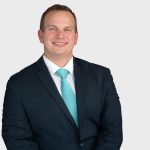 Scott Royal Smith is a real estate investor and asset protection attorney. Scott became an entrepreneur while still in law school, purchasing and running an auto mechanic shop, to pay his way through school. After graduating, Scott began his law career as a high-stakes corporate litigator. He spent the last 10 years of his career analyzing real estate investment and asset protection. Today, Scott is the Founder and CEO of Royal Legal Solutions. A firm he built to offer tax, business, and legal strategies to clients all over the U.S and Canada. He continues to educate the public on asset protection strategies to help circumvent debilitating lawsuits for his clients.
Scott Royal Smith is a real estate investor and asset protection attorney. Scott became an entrepreneur while still in law school, purchasing and running an auto mechanic shop, to pay his way through school. After graduating, Scott began his law career as a high-stakes corporate litigator. He spent the last 10 years of his career analyzing real estate investment and asset protection. Today, Scott is the Founder and CEO of Royal Legal Solutions. A firm he built to offer tax, business, and legal strategies to clients all over the U.S and Canada. He continues to educate the public on asset protection strategies to help circumvent debilitating lawsuits for his clients.
Our sponsor, Tribevest provides the easiest way to form, fund, and manage your Investor Tribe with people you know, like, and trust. Tribevest is the Investor Tribe management platform of choice for Jim Pfeifer and the Left Field Investors’ Community.
Tribevest is a strategic partner and sponsor of Passive Investing from Left Field.

